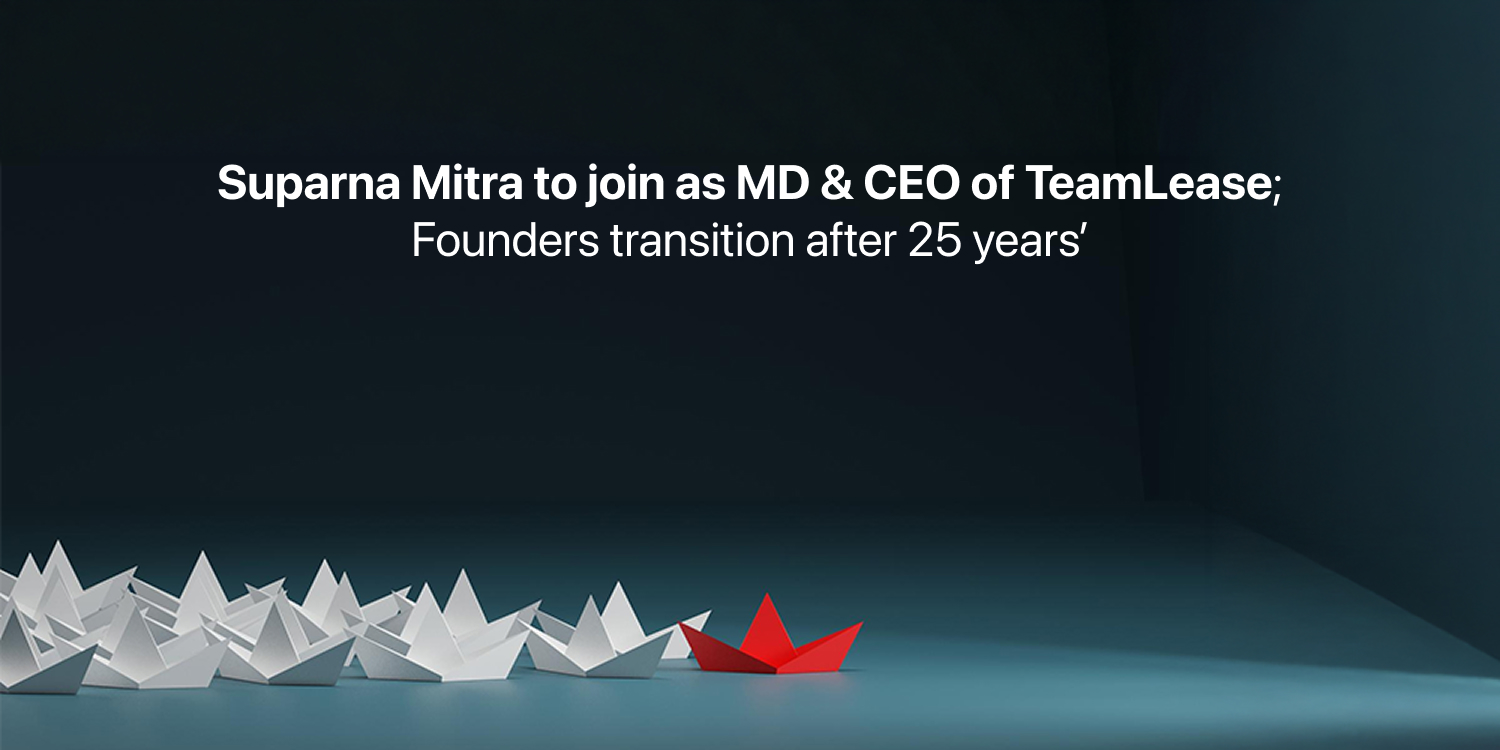Suparna Mitra to Join as MD & CEO of TeamLease
TEAMLEASE APPOINTS NEW MANAGING DIRECTOR; CO-FOUNDERS TRANSITION ROLES AFTER 25 YEARS
Bengaluru, India, Dec 04, 2025 - TeamLease Services Limited (TeamLease/Company) (NSE: TEAMLEASE, BSE: 539658), one of India’s largest staffing companies, today announced a leadership transition as part of the company’s long-term succession planning and governance strategy.The Board of Directors of TeamLease has appointed Ms. Suparna Mitra as the Managing Director & Chief Executive Officer (MD & CEO) of TeamLease Services Limited, effective February 02, 2026, to succeed Mr. Ashok Reddy, the current Managing Director & CEO. Mr. Manish Sabharwal will step down from his executive responsibilities but continue as a Non-Executive Non-Independent Director. Mr. Narayan Ramachandran will continue in his role as the Chairman.
Ashok, in his new role as Executive Vice Chairman, will work with Suparna to ensure a seamless transition and support her on long-term strategy, horizontal projects and building adjacencies.
Ashok commented on today’s announcement, “This transition is the logical next step for Manish and me. Our executive roles were always distinct from our board member and shareholder roles, which continue. The next orbit for Teamlease - higher margins, faster growth and institutionalisation - will benefit from leadership instincts that are fresh and different from ours. Suparna brings a powerful combination of strategic thinking, consumer insight, and technology orientation that accelerates TeamLease’s mission of putting India to work.”
About Suparna Mitra
Suparna joins TeamLease from Titan Company Limited, where she most recently served as the CEO of the Watches & Wearables Division. An alumna of IIM Calcutta, where she completed her MBA, and Jadavpur University, where she earned her Bachelor’s degree in Electrical Engineering, Suparna began her career as a management trainee with Hindustan Lever Limited. She worked with Arvind Brands Limited as Business Head- Lee, before joining Titan in 2006 as Global Marketing Head. She took on progressively larger leadership roles in Titan over the years. Under her leadership, Titan’s Watches & Wearables division delivered 2x revenue growth in three years to reach Rs. 4,500cr in FY 2024-25, strengthened market leadership in watches through premiumization, and built a category-defining wearables business. She brings over three decades of deep experience across technology-led transformation, retail, digital commerce, and organisational scale management, having led teams of over 3,000 employees and complex P&Ls. Recognised repeatedly among India’s Most Powerful Women in Business, Suparna also serves as an Independent Board Member of Swiggy and a Member of the Board of Governors of IIM Kozhikode.Suparna said, “I am honoured to join TeamLease at such a pivotal moment for India and its employment landscape. TeamLease has built a unique foundation across staffing, skilling, and compliance, touching millions of lives every year. I look forward to working with the Board and the leadership team to unlock the next phase of growth, digital innovation, and social impact.”















